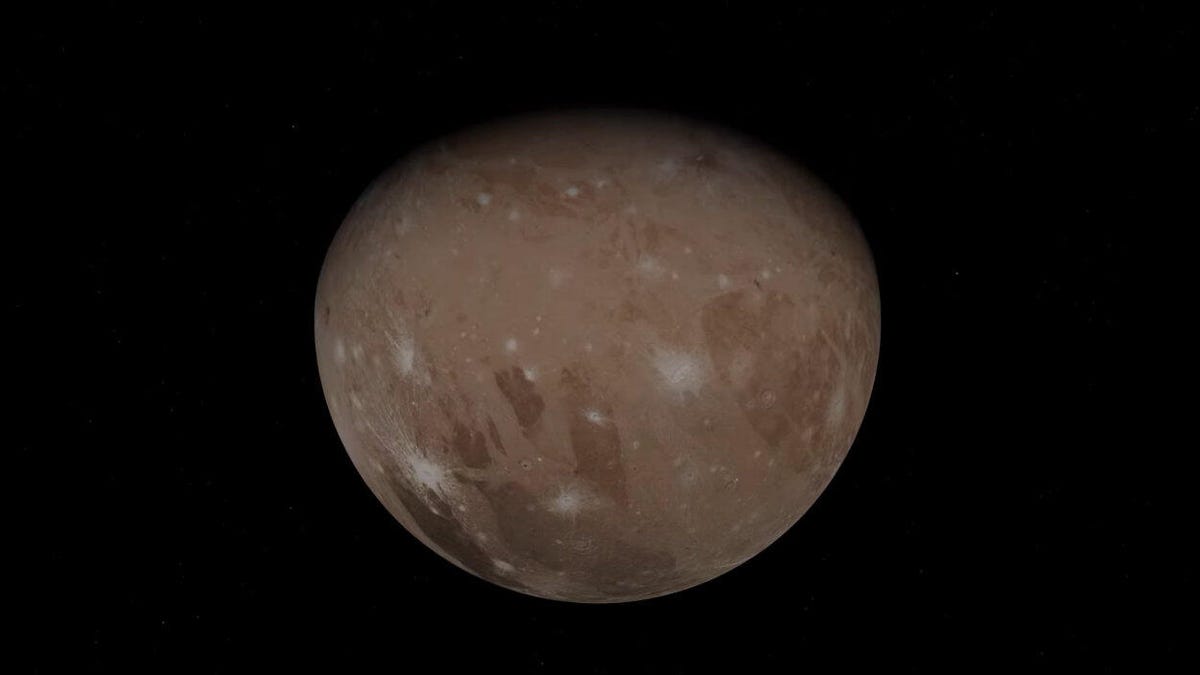Watch a wondrous NASA flyby video of Jupiter and its moon Ganymede
The Juno spacecraft's recent flybys are rendered as an astonishing tour.

Ganymede poses in a still from a NASA Juno flyby animation.
In June, NASA's Juno spacecraft did some spectacular celestial sightseeing with a close flyby of the largest moon in the solar system, Jupiter's Ganymede. It followed that triumph with a flyby of the gas giant itself. NASA took images from those adventures and created a "starship captain" point-of-view video that's truly astounding.
It's a beautiful blend of science, space exploration and movie magic. The video uses images from the spacecraft's JunoCam mapped onto digital models to create a seamless flyby animation.
The video perspective is designed to make you feel like you're on board with Juno, which has been exploring Jupiter since 2016 and earlier this year received a mission extension through late 2025. The extension includes a new focus on the gas giant's fascinating moons. That's where Ganymede comes into play.
The sequence begins with Juno approaching Ganymede where it passed within 645 miles (1,038 kilometers) of the surface. It then zooms into Jupiter and the swirling, feisty storms on display there. Look for the simulated lightning.
A Vangelis (see Blade Runner) musical score was the perfect choice to go along with the flyby video.
"The animation shows just how beautiful deep space exploration can be," Juno principal investigator Scott Bolton said of the Southwest Research Institute in a NASA statement this week. "The animation is a way for people to imagine exploring our solar system firsthand by seeing what it would be like to be orbiting Jupiter and flying past one of its icy moons."
If I had to sum it up in one word: gorgeous.
Follow CNET's 2021 Space Calendar to stay up to date with all the latest space news this year. You can even add it to your own Google Calendar.

